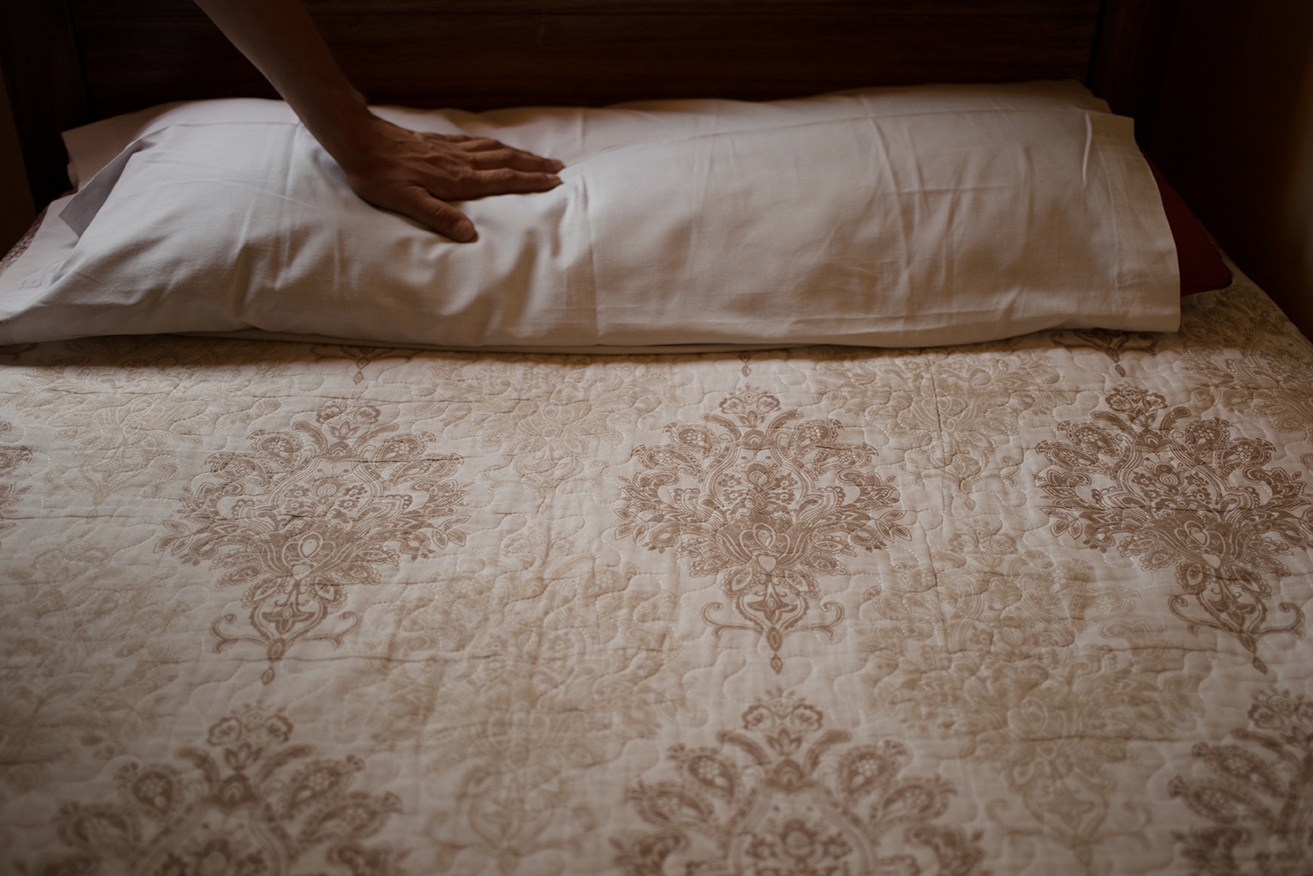
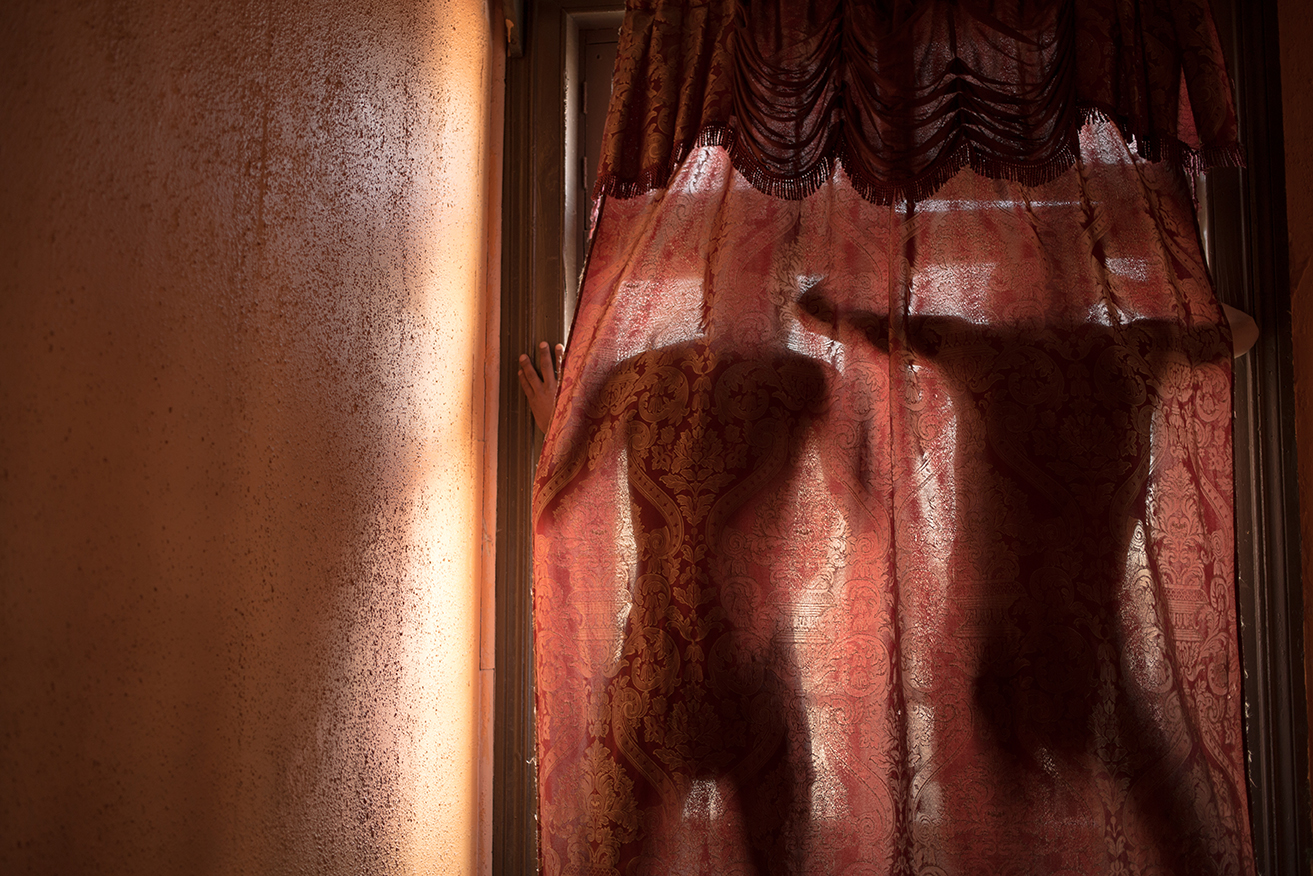
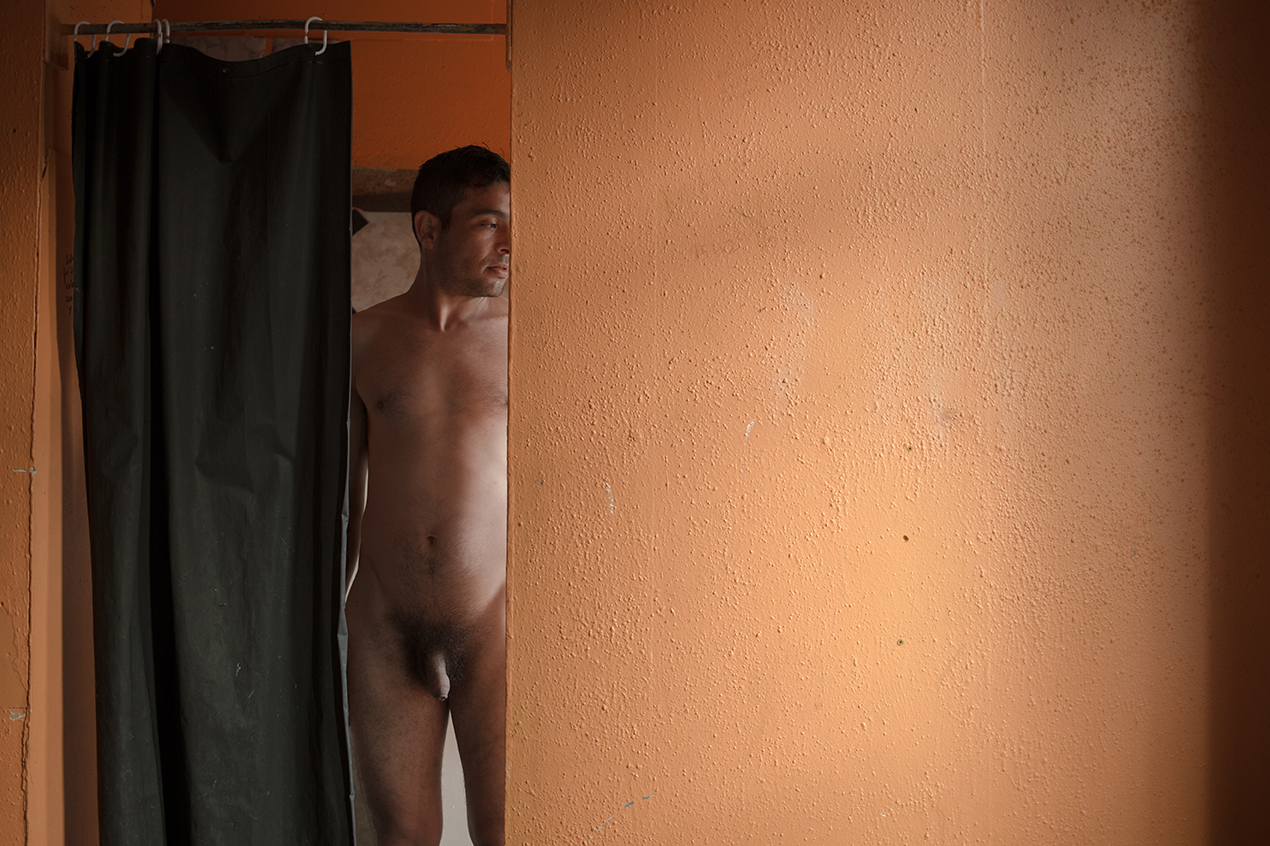
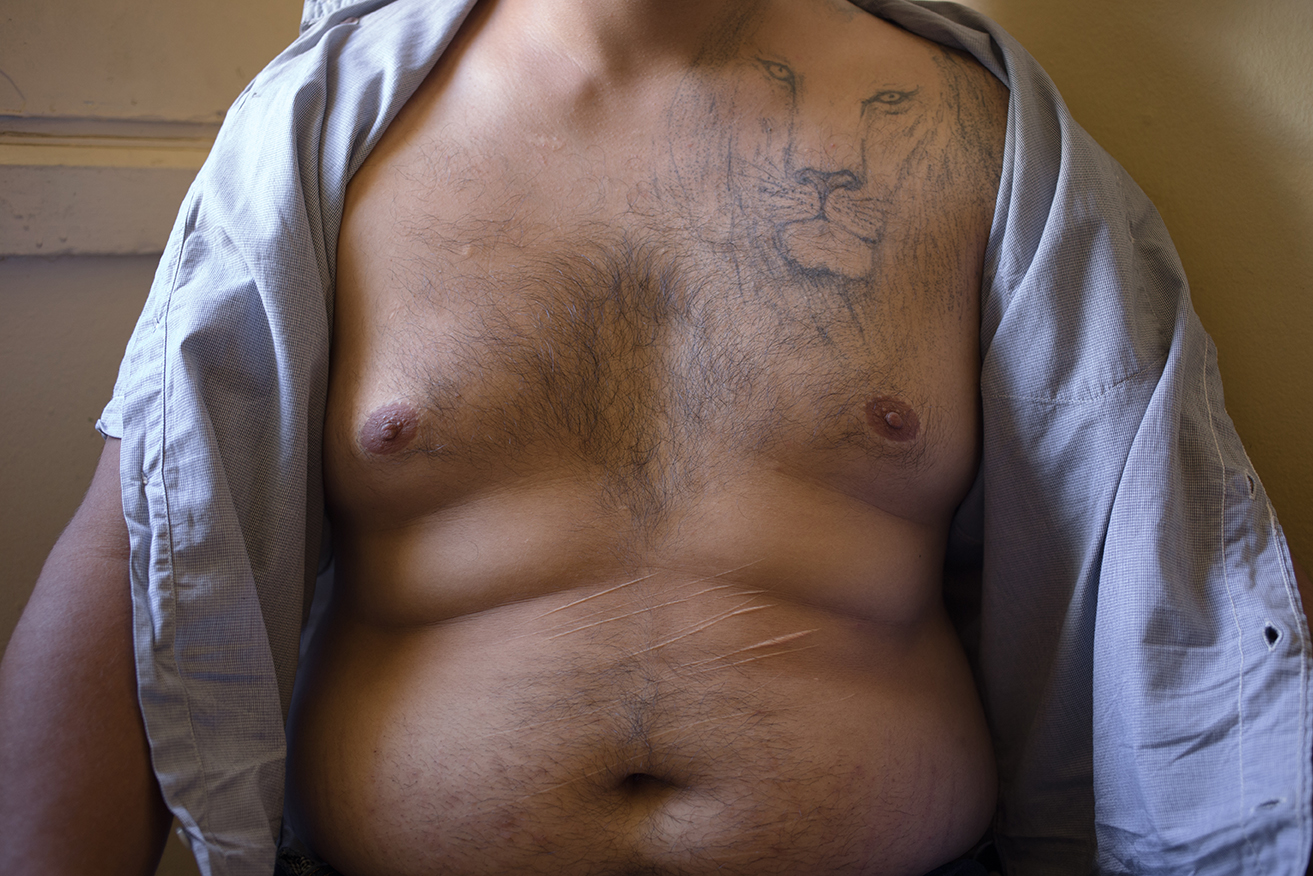
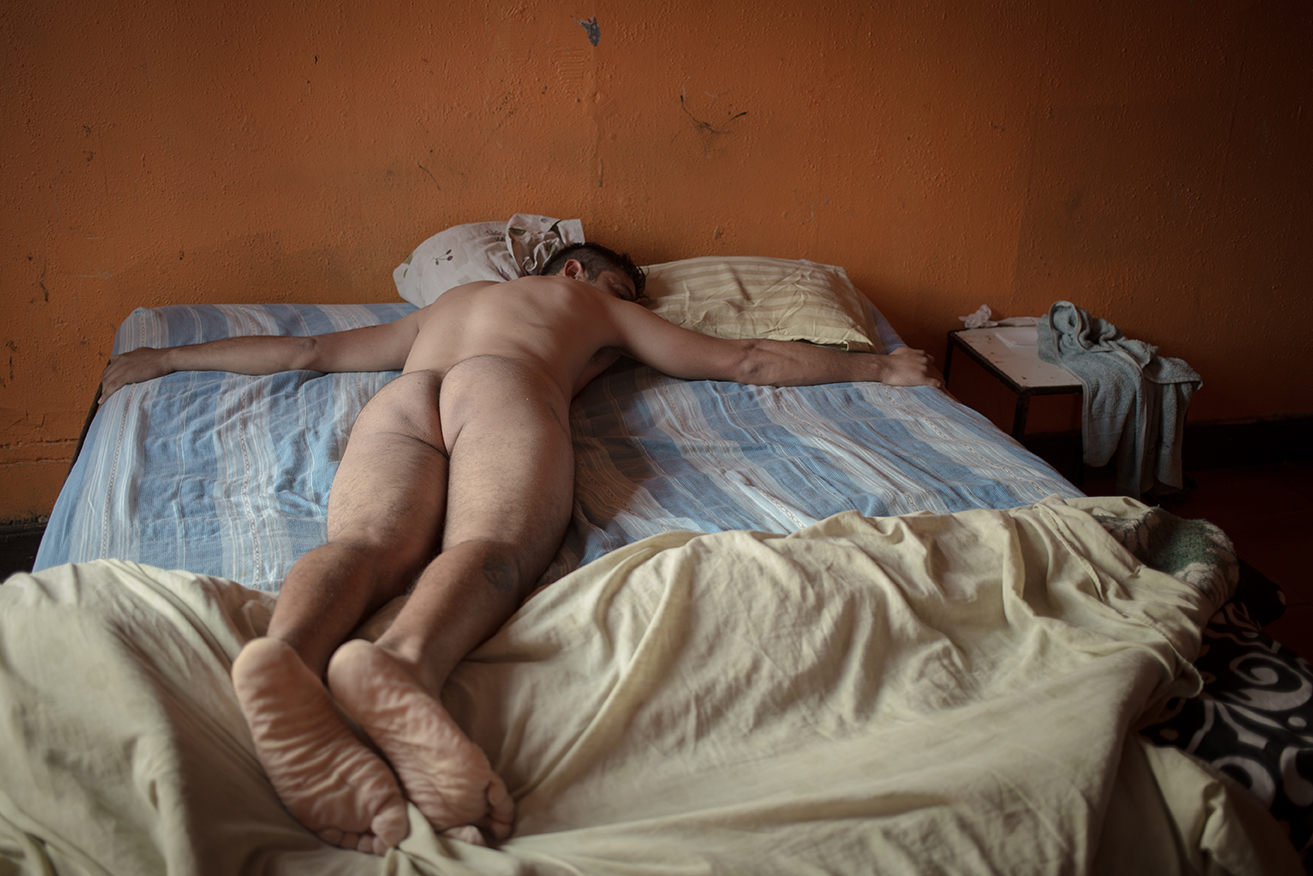
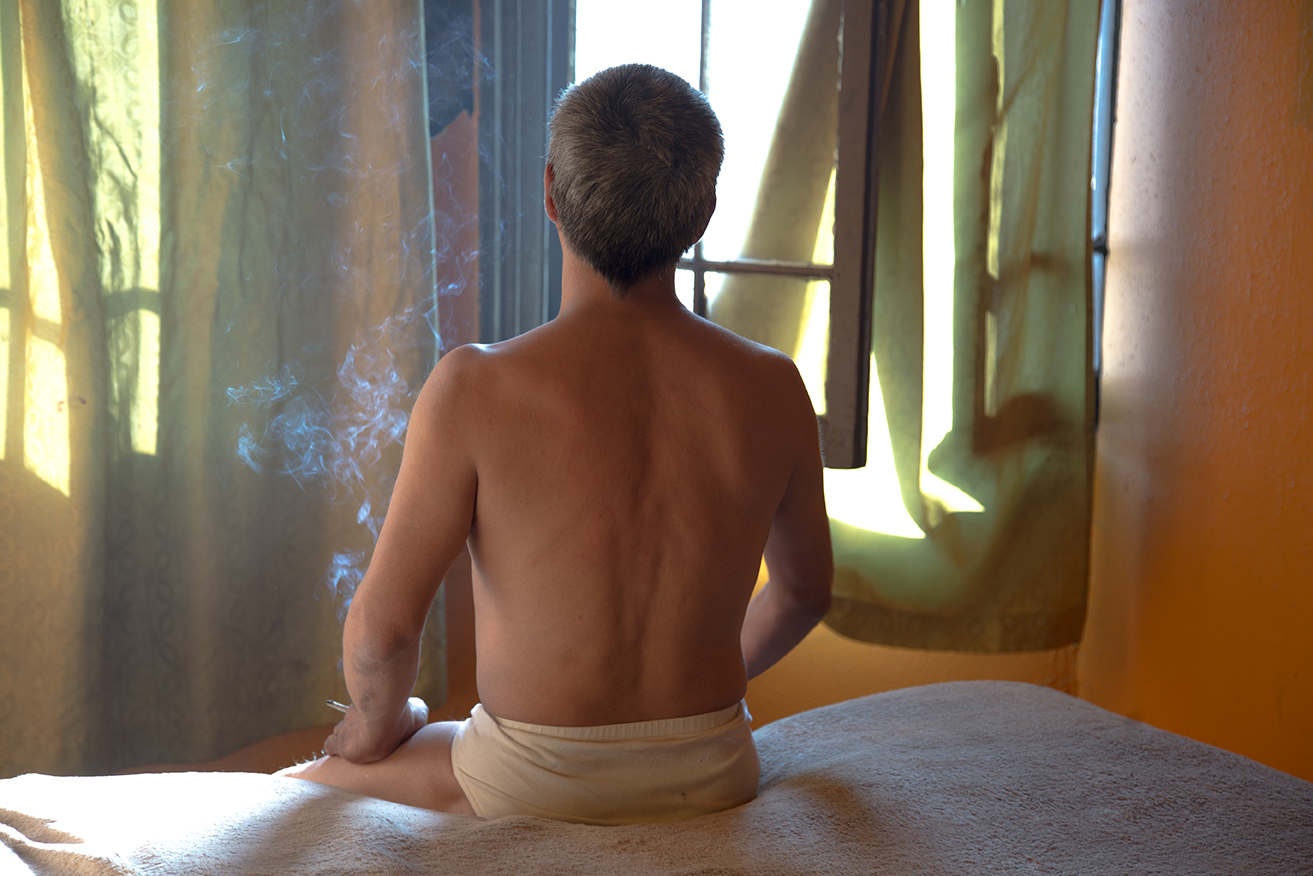
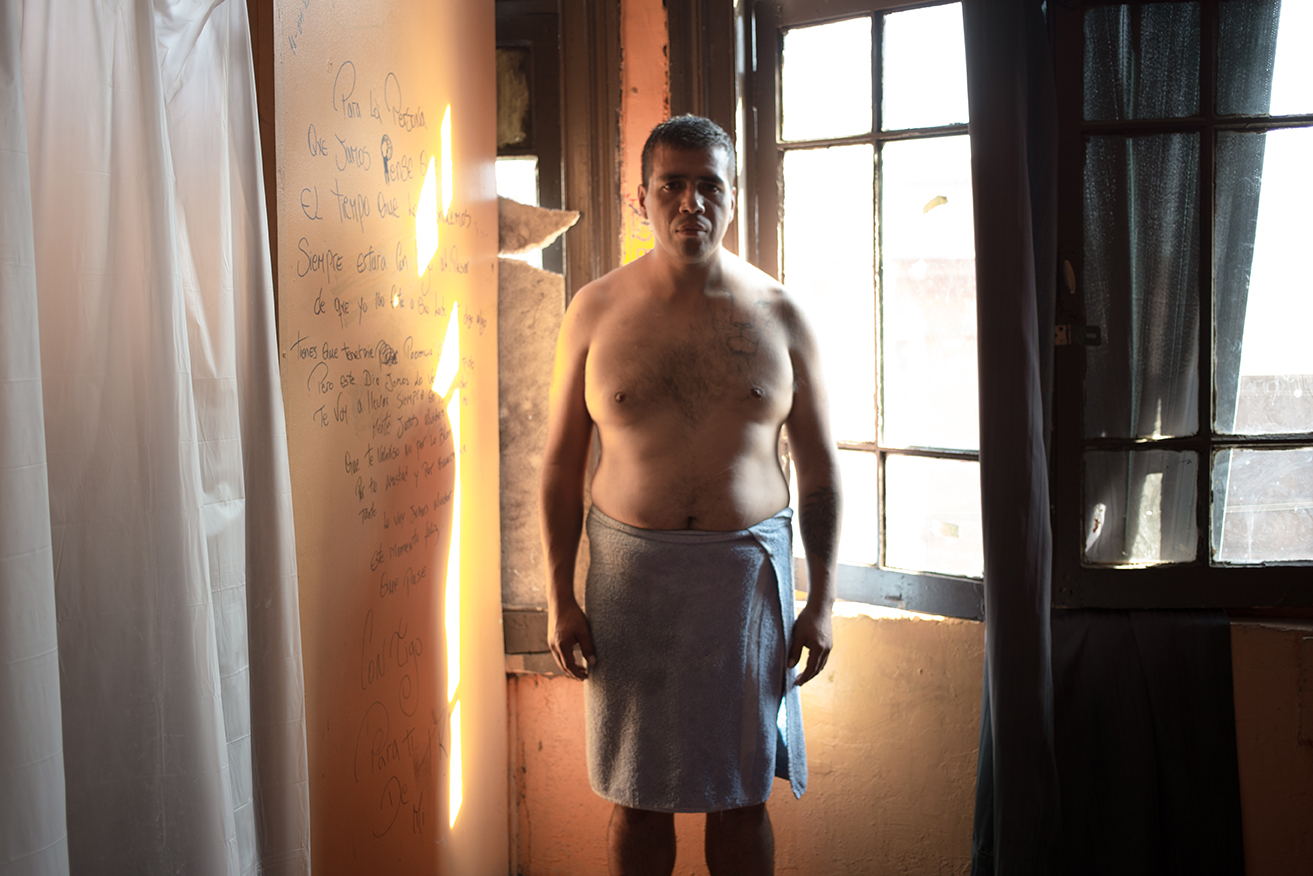
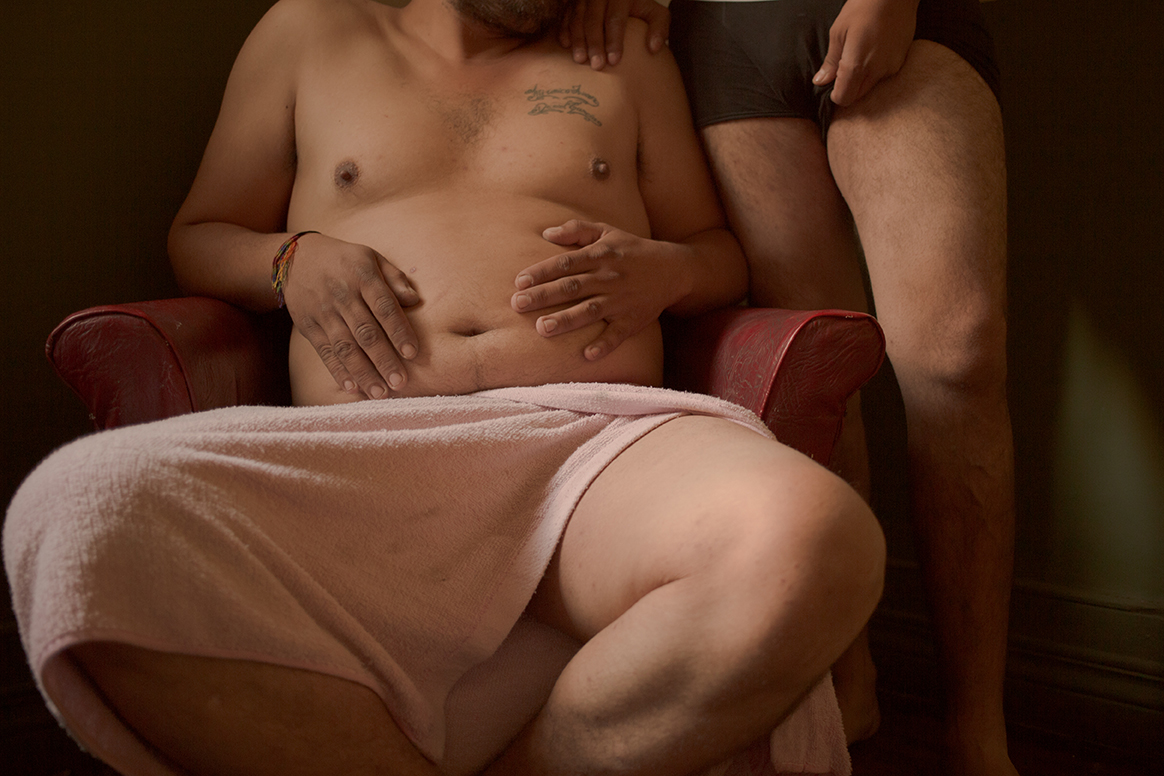
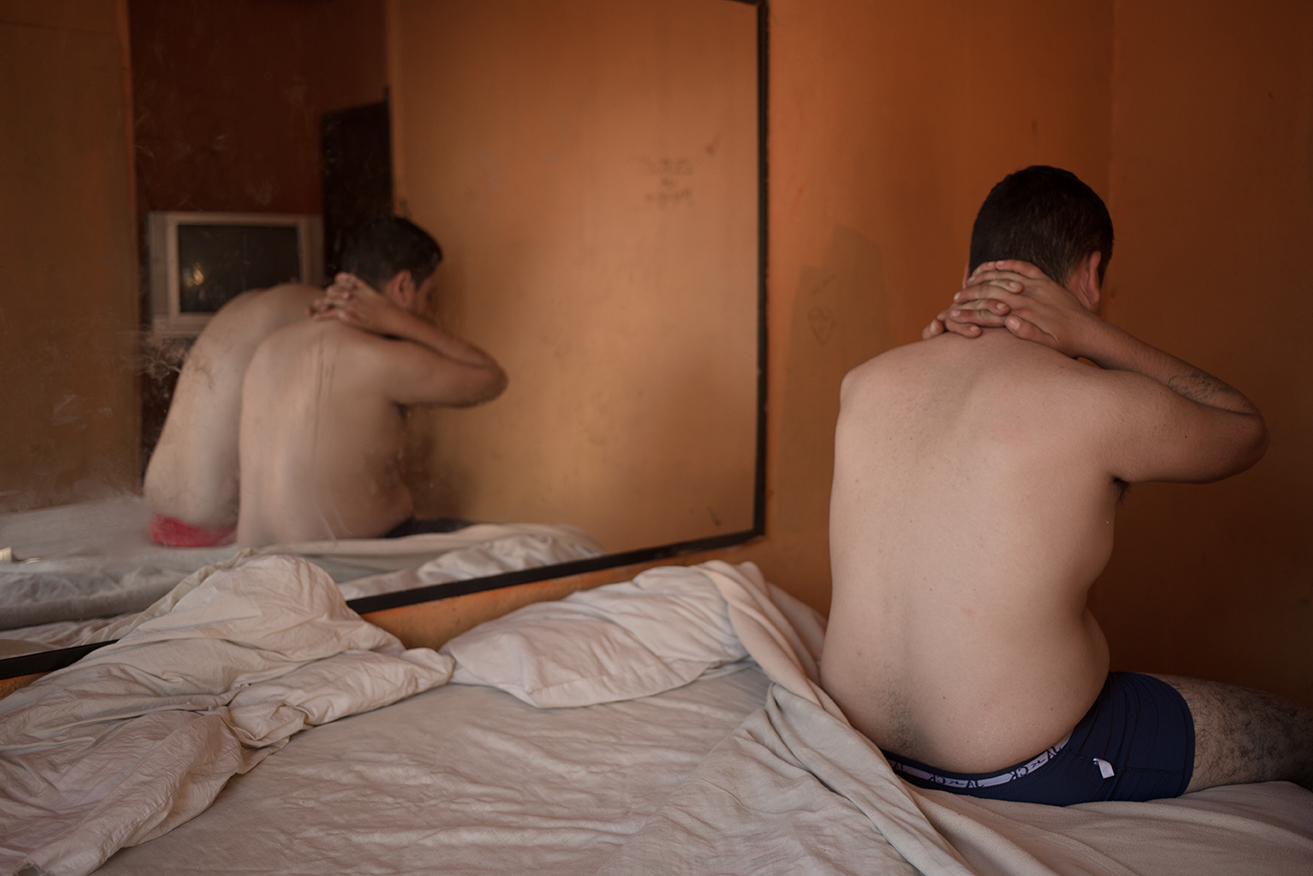
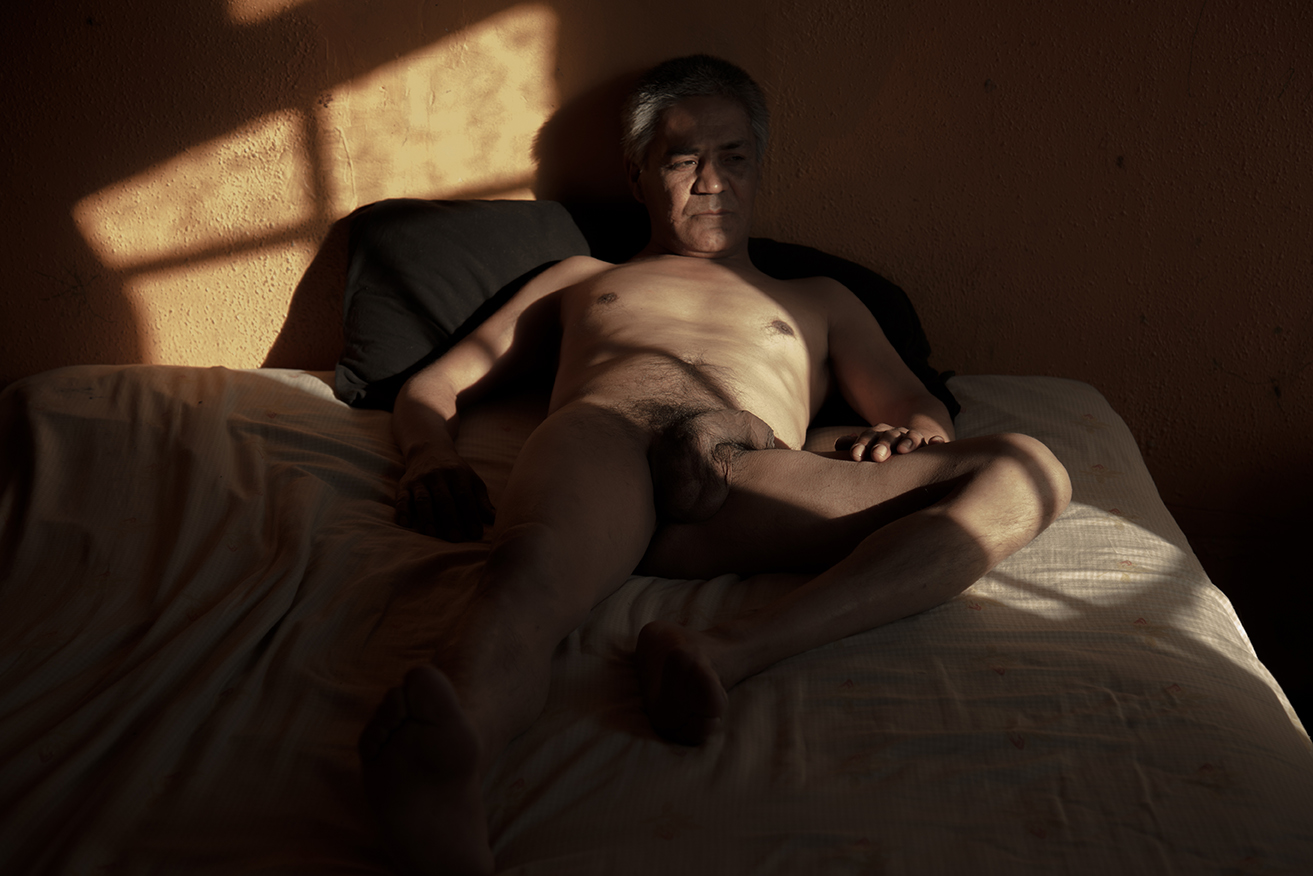
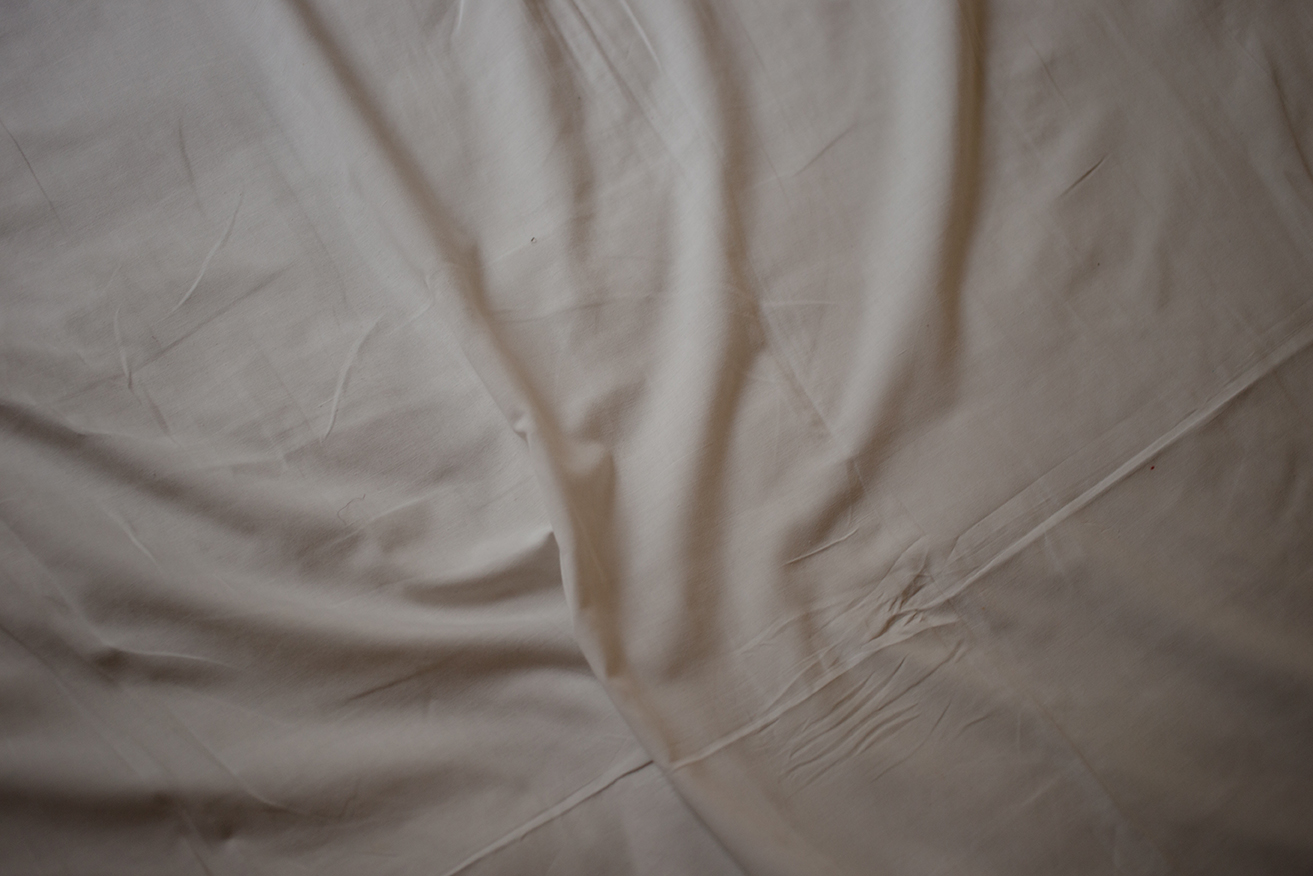
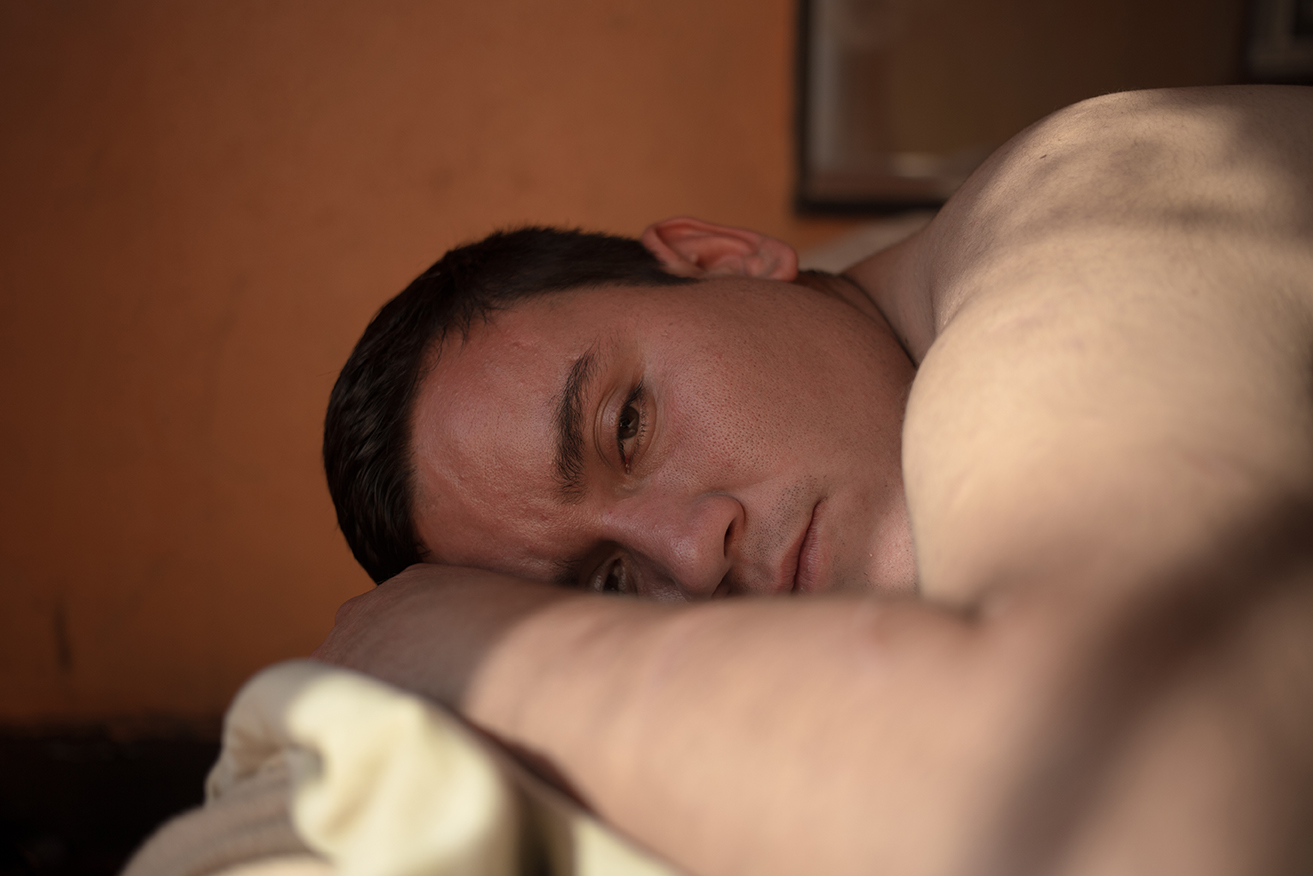
Tiempo de Vals
2018-2019
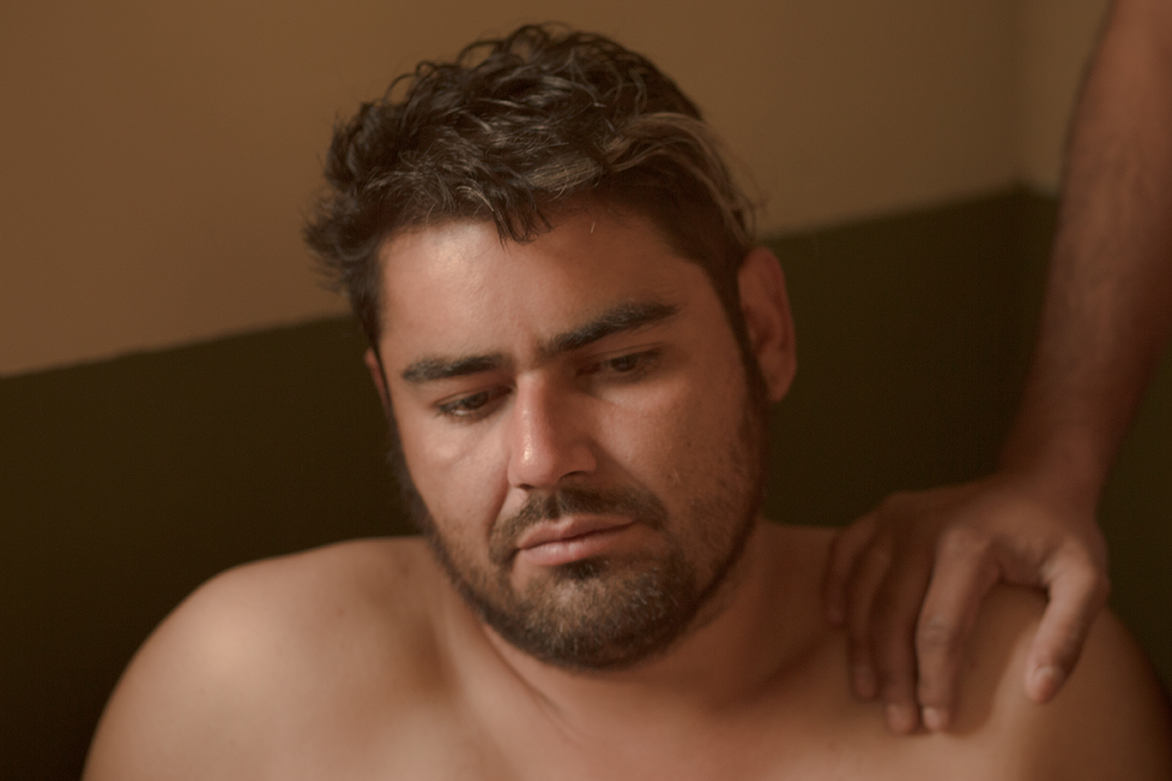
La publicación Tiempo de Vals de Carla Yovane Pérez es el resultado de un proyecto documental sobre los trabajadores sexuales de la Plaza de Armas de Santiago, que se inició en 2018 conversando con mujeres trabajadores sexuales de la misma plaza con las que la fotógrafa ya había entablado una relación. De ahí empezaron los primeros vínculos en las bancas de la plaza, que se convirtieron en complicidades y recorridos por moteles cercanos al kilómetro cero con Víctor, Héctor, Claudio, Andrés, Pato, Gerson, Eduardo, Gonzalo y Alex.
El encierro obligatorio de la pandemia por el COVID hizo que las visitas cesaran, lo que permitió revisar el material recopilado con cierta distancia. Las fotografías las conocía, llevaba tiempo de conversación con Carla sobre este proyecto; luego me llegaron los audios de las entrevistas y sus transcripciones, también fotos y videos de los momentos en que festejaban haber exhibido parte del proyecto en distintos espacios en Chile y el extranjero. Iba a escribir un texto para el libro, pero no me hacía ningún sentido. El proceso era en sí un cuaderno de anotaciones fotográficas, un diálogo entre la fotógrafa y los hombres retratados. Las entrevistas y notas realizadas por Carla durante estos años, incluidas finalmente como un texto en primera persona en la publicación, daban cuenta de las historias de vida de abandono, dolor y desamparo; también aparecían en esos relatos vivencias personales en el SENAME, o relaciones con el caso Spiniak y la tragedia de Antuco, entretejidas con anhelos de sobrevivencia y de quererse deseados, no solo a nivel sexual sino para encontrar una suerte de vínculo afectivo con alguien que los mirara a los ojos.
El acercamiento fotográfico da cuenta de una mirada cercana, afectiva, atenta y cuidadosa, que retrata la placidez de los cuerpos antes o después del sexo, donde la calidez de la luz, el cobijo de las sábanas, las sonrisas que se asoman o el canto alegre de estos buenos muchachos, nos permiten derribar prejuicios y estigmas -si existieran- para mirar con detención lo que pasa inadvertido. Imágenes que nos hablan de eso que el cuerpo sabe a través de las cicatrices, los tatuajes, las heridas o los pliegues, para insistir en el deseo de pertenecer a algún lugar, de sanar de las heridas de la infancia, de seguir respirando para sentirse vivos.
La única imagen del espacio público del libro, es la de una banca de la plaza intervenida con cruces amarillas como señalización para la prohibición de sentarse y mantener la distancia social del contagio (palabra que mientras la escribo me lleva a pensar en la discriminación social y la homofobia que esa palabra trajo consigo frente a la transmisión del SIDA), mientras el bullicio cotidiano del centro queda contenido en el silencio de las habitaciones de los moteles y en las playlist que suenan en sus pasillos. El pago es por hora, media hora, por un instante entre almuerzos, a media tarde o cuando cae la noche...pues “donde hacer lo de siempre es volver a empezar”, como dice una estrofa de la canción Tiempo de Vals de Chayanne. Quizás buscarse la vida a diario es el acto de resistencia más común, por la precariedad y las incertezas del sistema.
La potencia de esta publicación radica en la mirada atenta y honesta de Yovane, a través de su compromiso por las imágenes (pues éstas nos habitan y nosotros habitamos en ellas) y por las
historias de esos hombres que importan, pues solo narrando y visibilizando las microhistorias situadas podremos construir un futuro posible donde cohabitar dignamente.
Andrea Jösch
___________________
The publication “Waltz Time” (Tiempo de Vals) by Carla Yovane Pérez is the result of a documentary photography project on male sex workers of the Plaza de Armas in Santiago, which began in 2018 by talking to women sex workers from the same plaza with whom the photographer had already a relationship with. From there began the first links she had on the benches of the park, which led to the involvement and collaboration with Víctor, Héctor, Claudio, Andrés, Pato, Gerson, Eduardo, Gonzalo and Alex and the motels tours near kilometer zero of the city.
The mandatory confinement due to the COVID pandemic caused the visits to cease, which made it possible to review the material collected from a certain distance. The photographs I knew, I had been talking with Carla for some time about this project; Then I received the audio of the interviews and their transcripts, as well as photos and videos of the moments in which they had celebrated when photographs of the project had been exhibited in different spaces in Chile and abroad. I was going to write a text for the book, but it didn't make any sense to me. The process itself was a photographic notebook, a dialogue between the photographer and the men she portrayed. The interviews and notes carried out by Carla during these years, finally included as a text in the first person in the publication, gave an account of the life stories of abandonment, pain and helplessness; Personal experiences in the SENAME institution, or relationships with the Spiniak case and the Antuco tragedy, also appeared in these stories, interwoven with longings for survival and wanting to be loved, not only on a sexual level but to find an emotional bond with someone who can look at them into the eyes.
The photographic approach reveals a close, affective, attentive and careful gaze, which portrays the placidity of the bodies before or after sex, where the warmth of the light, the shelter of the sheets, the smiles that appear or the happy song of “these good guys”, allow us to break down prejudices and stigmas -if they exist- to look closely at what goes unnoticed. Images that tell us about what the body knows through scars, tattoos, wounds or pleats, to insist on the desire to belong somewhere, to heal from childhood wounds, to continue breathing to feel alive.
The only image of the public space that appears in the book is that of a bench in the park, intervened with yellow crosses as a signal for the prohibition of sitting and maintaining social distance for preventing the spread of any “contagious” disease (a word that as I write it leads me to think about social discrimination and the homophobia that that word brought with it in the face of the transmission of AIDS), while the daily bustle of the center is contained in the silence of the motel rooms and in the playlists that sound in its corridors. The payment is by the hour, half an hour, for a moment between lunches, in the middle of the afternoon or when night falls... because "where doing the usual thing is to start over", as a verse from Chayanne's song “Tiempo de Vals” says. Perhaps looking for life on a daily basis is the most common act of resistance, due to the precariousness and uncertainties of the system
The power of this publication lies in Yovane's attentive and honest gaze, through his commitment to images (since they inhabit us and we inhabit them) and to the stories of those men who matter, since only narrating and making visible the situated microhistories we will be able to build a possible future where we can cohabit with dignity.
Andrea Jösch
El encierro obligatorio de la pandemia por el COVID hizo que las visitas cesaran, lo que permitió revisar el material recopilado con cierta distancia. Las fotografías las conocía, llevaba tiempo de conversación con Carla sobre este proyecto; luego me llegaron los audios de las entrevistas y sus transcripciones, también fotos y videos de los momentos en que festejaban haber exhibido parte del proyecto en distintos espacios en Chile y el extranjero. Iba a escribir un texto para el libro, pero no me hacía ningún sentido. El proceso era en sí un cuaderno de anotaciones fotográficas, un diálogo entre la fotógrafa y los hombres retratados. Las entrevistas y notas realizadas por Carla durante estos años, incluidas finalmente como un texto en primera persona en la publicación, daban cuenta de las historias de vida de abandono, dolor y desamparo; también aparecían en esos relatos vivencias personales en el SENAME, o relaciones con el caso Spiniak y la tragedia de Antuco, entretejidas con anhelos de sobrevivencia y de quererse deseados, no solo a nivel sexual sino para encontrar una suerte de vínculo afectivo con alguien que los mirara a los ojos.
El acercamiento fotográfico da cuenta de una mirada cercana, afectiva, atenta y cuidadosa, que retrata la placidez de los cuerpos antes o después del sexo, donde la calidez de la luz, el cobijo de las sábanas, las sonrisas que se asoman o el canto alegre de estos buenos muchachos, nos permiten derribar prejuicios y estigmas -si existieran- para mirar con detención lo que pasa inadvertido. Imágenes que nos hablan de eso que el cuerpo sabe a través de las cicatrices, los tatuajes, las heridas o los pliegues, para insistir en el deseo de pertenecer a algún lugar, de sanar de las heridas de la infancia, de seguir respirando para sentirse vivos.
La única imagen del espacio público del libro, es la de una banca de la plaza intervenida con cruces amarillas como señalización para la prohibición de sentarse y mantener la distancia social del contagio (palabra que mientras la escribo me lleva a pensar en la discriminación social y la homofobia que esa palabra trajo consigo frente a la transmisión del SIDA), mientras el bullicio cotidiano del centro queda contenido en el silencio de las habitaciones de los moteles y en las playlist que suenan en sus pasillos. El pago es por hora, media hora, por un instante entre almuerzos, a media tarde o cuando cae la noche...pues “donde hacer lo de siempre es volver a empezar”, como dice una estrofa de la canción Tiempo de Vals de Chayanne. Quizás buscarse la vida a diario es el acto de resistencia más común, por la precariedad y las incertezas del sistema.
La potencia de esta publicación radica en la mirada atenta y honesta de Yovane, a través de su compromiso por las imágenes (pues éstas nos habitan y nosotros habitamos en ellas) y por las
historias de esos hombres que importan, pues solo narrando y visibilizando las microhistorias situadas podremos construir un futuro posible donde cohabitar dignamente.
Andrea Jösch
___________________
The publication “Waltz Time” (Tiempo de Vals) by Carla Yovane Pérez is the result of a documentary photography project on male sex workers of the Plaza de Armas in Santiago, which began in 2018 by talking to women sex workers from the same plaza with whom the photographer had already a relationship with. From there began the first links she had on the benches of the park, which led to the involvement and collaboration with Víctor, Héctor, Claudio, Andrés, Pato, Gerson, Eduardo, Gonzalo and Alex and the motels tours near kilometer zero of the city.
The mandatory confinement due to the COVID pandemic caused the visits to cease, which made it possible to review the material collected from a certain distance. The photographs I knew, I had been talking with Carla for some time about this project; Then I received the audio of the interviews and their transcripts, as well as photos and videos of the moments in which they had celebrated when photographs of the project had been exhibited in different spaces in Chile and abroad. I was going to write a text for the book, but it didn't make any sense to me. The process itself was a photographic notebook, a dialogue between the photographer and the men she portrayed. The interviews and notes carried out by Carla during these years, finally included as a text in the first person in the publication, gave an account of the life stories of abandonment, pain and helplessness; Personal experiences in the SENAME institution, or relationships with the Spiniak case and the Antuco tragedy, also appeared in these stories, interwoven with longings for survival and wanting to be loved, not only on a sexual level but to find an emotional bond with someone who can look at them into the eyes.
The photographic approach reveals a close, affective, attentive and careful gaze, which portrays the placidity of the bodies before or after sex, where the warmth of the light, the shelter of the sheets, the smiles that appear or the happy song of “these good guys”, allow us to break down prejudices and stigmas -if they exist- to look closely at what goes unnoticed. Images that tell us about what the body knows through scars, tattoos, wounds or pleats, to insist on the desire to belong somewhere, to heal from childhood wounds, to continue breathing to feel alive.
The only image of the public space that appears in the book is that of a bench in the park, intervened with yellow crosses as a signal for the prohibition of sitting and maintaining social distance for preventing the spread of any “contagious” disease (a word that as I write it leads me to think about social discrimination and the homophobia that that word brought with it in the face of the transmission of AIDS), while the daily bustle of the center is contained in the silence of the motel rooms and in the playlists that sound in its corridors. The payment is by the hour, half an hour, for a moment between lunches, in the middle of the afternoon or when night falls... because "where doing the usual thing is to start over", as a verse from Chayanne's song “Tiempo de Vals” says. Perhaps looking for life on a daily basis is the most common act of resistance, due to the precariousness and uncertainties of the system
The power of this publication lies in Yovane's attentive and honest gaze, through his commitment to images (since they inhabit us and we inhabit them) and to the stories of those men who matter, since only narrating and making visible the situated microhistories we will be able to build a possible future where we can cohabit with dignity.
Andrea Jösch
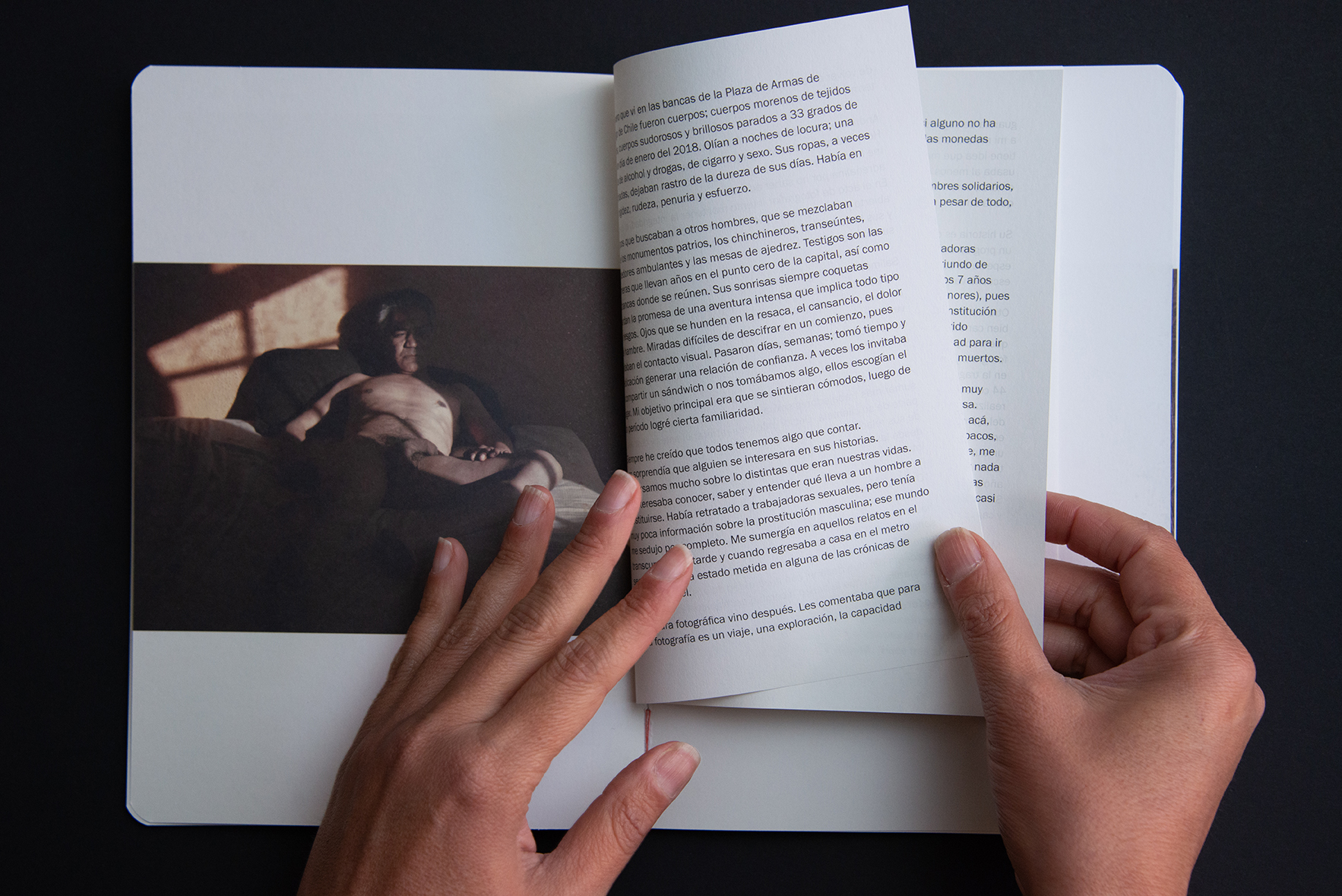
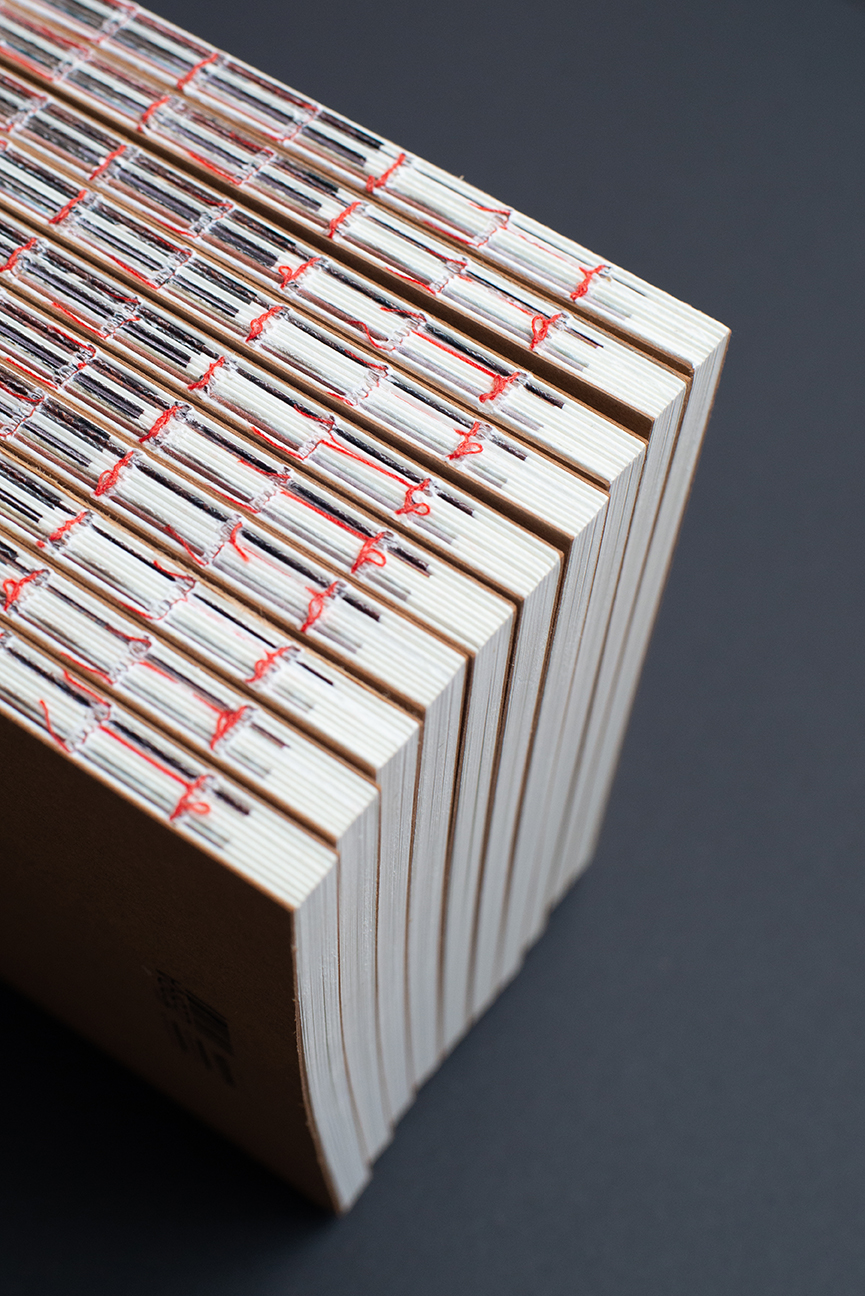
Waltz Time
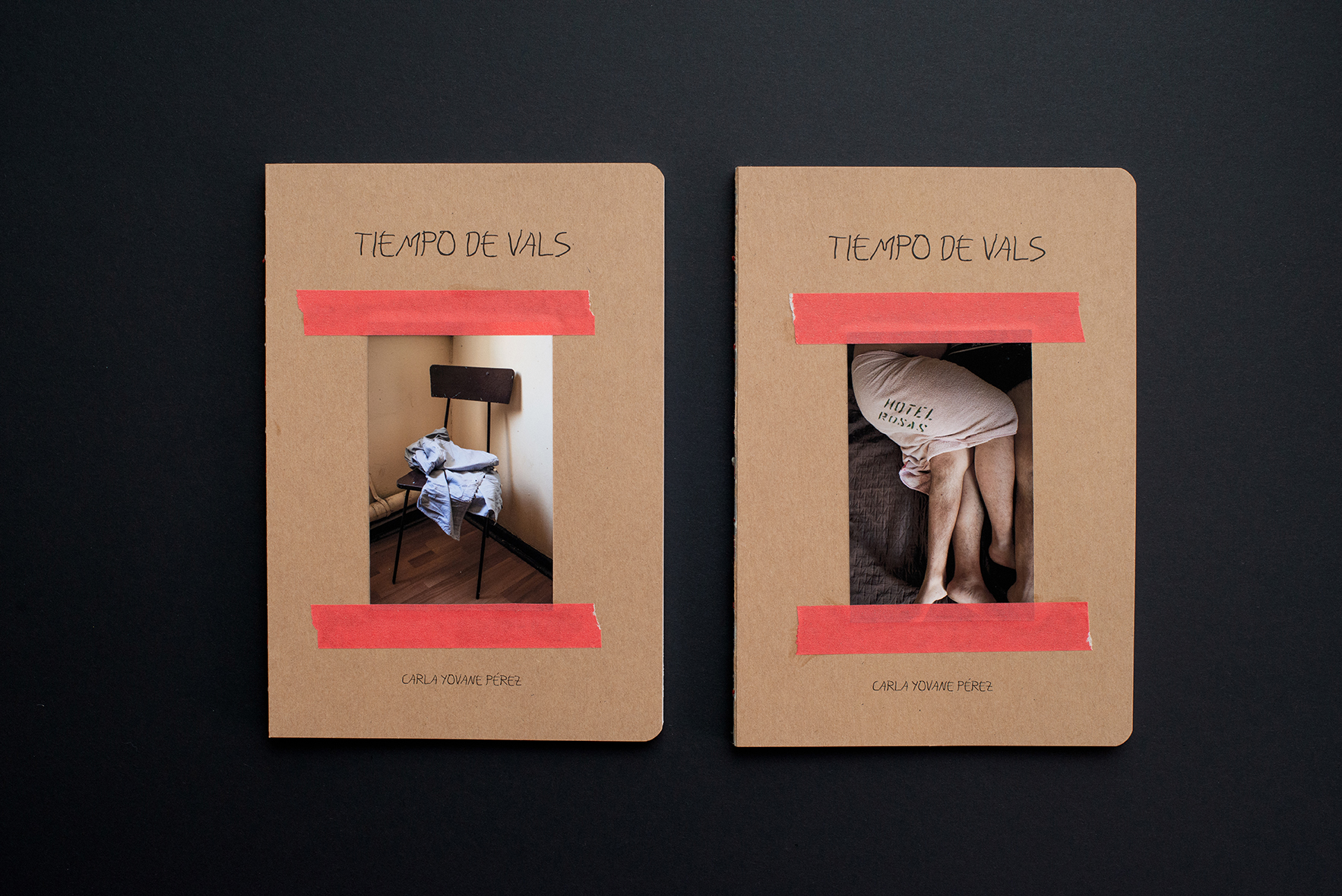
During early 2018, I began portraying male prostitutes in Plaza de Armas in downtown Santiago, Chile. In those meetings, I got to know several men. I talked to them, interviewed them and photographed them. Their stories interweave a network of affection and at the same time pain, mostly related to tragic events that involve abandonment by their families and state.
This book is a photographic essay that portrays a vision of a masculine world that is rarely documented, one that captures intimate and sometimes stormy moments of male prostitutes and their male clients in the center of Santiago, Chile. The sex industry is one of the oldest in the world, however, in our society we try to keep this reality out of sight. These images were take inside motel rooms before and after they had sex with their clients. The images uncover traces of the human condition and its intangible feelings. I personally try to offer a thoughtful approach on the subject and these neglected people by society.
Exhibiciones/Difusión
︎︎︎Exposición Tiempo de Vals en Espacio 218
︎︎︎Tiempo de Vals en Image Singulieres
︎︎︎Entrevista en matinal “Juntos otra mañana” en Tvred
This book is a photographic essay that portrays a vision of a masculine world that is rarely documented, one that captures intimate and sometimes stormy moments of male prostitutes and their male clients in the center of Santiago, Chile. The sex industry is one of the oldest in the world, however, in our society we try to keep this reality out of sight. These images were take inside motel rooms before and after they had sex with their clients. The images uncover traces of the human condition and its intangible feelings. I personally try to offer a thoughtful approach on the subject and these neglected people by society.
Exhibiciones/Difusión
︎︎︎Exposición Tiempo de Vals en Espacio 218
︎︎︎Tiempo de Vals en Image Singulieres
︎︎︎Entrevista en matinal “Juntos otra mañana” en Tvred
